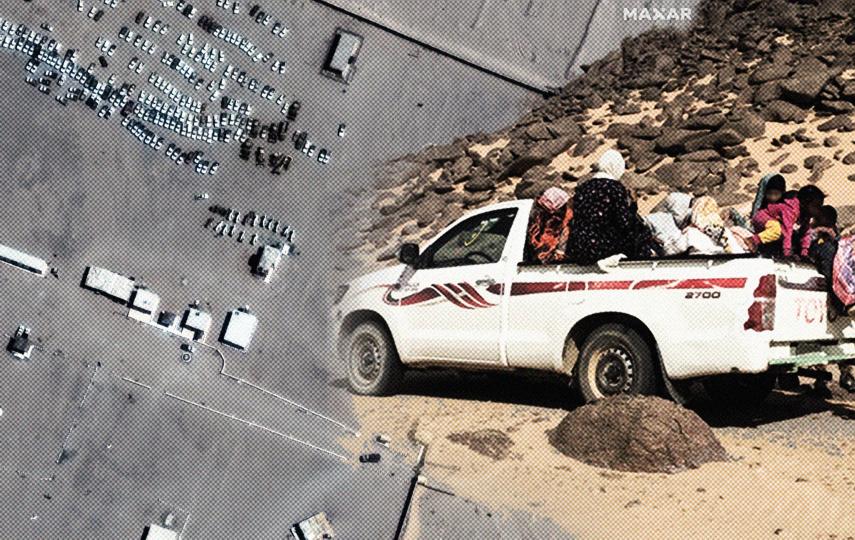With the encouragement of United Nations Secretary-General Ban Ki-moon, civil society organisations are pressuring government representatives gathered at the UN High-Level meeting on HIV/AIDS in New York this week to step up their efforts in the global HIV/AIDS battle.
The meeting, attended by hundreds of government officials, including several African presidents, and AIDS activists from around the world, is an opportunity to hold governments accountable for failing to meet targets on HIV prevention, treatment, care and support they agreed to at the United Nations General Assembly's Special Session on HIV/AIDS (UNGASS) in 2001.
Earlier this year, countries submitted national progress reports revealing that most nations worst hit by the HIV/AIDS epidemic were still far from reaching many of the UNGASS goals.
Olayide Akanni, of the African Civil Society Coalition on HIV/AIDS and Journalists Against AIDS, a Nigerian NGO, told IRIN/PlusNews that some countries had given incomplete pictures of their national AIDS burden in their reports to UNGASS. “Some countries are not reporting on the UNGASS indicators. Going forth from here we would like to see a lot more accountability and commitment on the part of governments.”
Ban Ki-moon praised civil society for its vanguard role in spurring governments that are “failing in their responsibility” to take action on HIV and AIDS. “I pay tribute to all of you who have led the struggle for the past decades, and I applaud the new leadership and new energy coming along, to take the response forward to the next phase. This next phase requires an approach that combines here-and-now emergency crisis tactics with strategic long-term thinking,” he told a gathering of NGOs on the opening day of the conference.
In a report presented to the General Assembly by the Secretary-General on Tuesday, Ban noted that by the end of last year, 3 million people had access to antiretroviral treatment in low- and middle-income countries; an increase of nearly a million over the previous year but still only 31 percent of those in need of such treatment.
Despite recent figures suggesting that the number of new HIV infections decreased from 3.2 million in 1998 to 2.5 million in 2007 and that the number of annual AIDS deaths had almost halved in the same time period, the report underlined the failure of expansions in prevention and treatment to keep pace with the epidemic.
“This situation is unacceptable. Our challenge now is to build on what we have started, bridge the gaps we know exist, and step up our efforts in years to come. We can do this only if we not only sustain, but step up our levels of commitment and financing,” said Ban.
In a year that marks the 60th anniversary of the Universal Declaration of Human Rights, a major theme at this year’s meeting has been the safe-guarding of the human rights of people living with HIV.
“Six decades after the Declaration was adopted, it is shocking that there should still be discrimination against those at high risk, such stigma attached to individuals living with HIV,” said Ban at Tuesday’s opening session. Such discrimination, he added “drives the virus underground, where it can spread in the dark; as important, it is an affront to our common humanity.”
The secretary-general called for a change in laws that uphold stigma and discrimination - including restrictions on travel for people living with HIV. According to UNAIDS, 74 countries have travel restrictions in place for HIV-positive people and 12 countries bar entry entirely to people infected with the virus.
“We are seeing increasingly in the world changes in sex laws that are detrimental to the human rights of sex workers,” she told IRIN/PlusNews. The new anti-trafficking laws, she said, “come down heavily on sex workers, who have been arrested, raped and denied access to HIV treatment.”
Addressing a civil society meeting, Mark Heywood, one of the leaders of South African AIDS lobby group, the Treatment Action Campaign and deputy chairperson of South Africa’s National AIDS Council, also stressed the importance of human rights. “Whether from government or civil society we must admit that we are failing many, many people. This is because in most parts of the world human rights violations that increase the risk of HIV infection, and those that follow after HIV infection are getting worse,” he said.
He called on attendees to demand that governments meet commitments on increasing development aid and stressed the need to devise and implement systems that measure and monitor human rights. He also urged them to “have the courage to openly denounce countries such as Zimbabwe that violate rights to health,” and to demand investment in justice systems that poor people can access.
ma/ks
See also: Epidemic outpacing response says UNAIDS
This article was produced by IRIN News while it was part of the United Nations Office for the Coordination of Humanitarian Affairs. Please send queries on copyright or liability to the UN. For more information: https://shop.un.org/rights-permissions
![La société civile craint une déclaration d'engagement "vide de sens" UN High-Level Meeting on HIV and AIDS in New York. [Date picture taken: 06/01/2006]](https://assets.thenewhumanitarian.org/s3fs-public/images/2006629.jpg)




